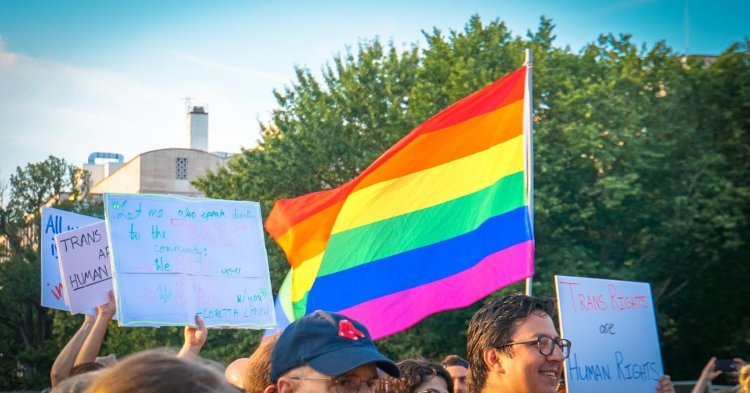While much of EU law is set to remain British law after the transition period ends, this does not include the Charter. After the UK officially leaves the EU, the government will be free to change existing equality legislation however they choose to. Pressure from external groups is often what influences change, so without the threat of judgement or expulsion from the EU, the UK will be much freer to put equality legislation on the backburner. This could have potentially devastating consequences on social equality in the UK.
The country does not need to have left the EU to see the effects that Brexit has already had on increasing intolerance in the UK. After the Brexit referendum, a surge of xenophobic, racist or religious hate crime was reported across the country. According to Stop Hate UK, 3 months after the EU referendum more than 14,000 Hate Crimes were reported by police, more than a 50% increase on the previous 3 months. The charity itself reported an increase of 32% in reported incidents overall, with incidents motivated by race increasing by 55% and those motivated by religion increasing by 80%. It is clear that inequality and discrimination aren’t just potential consequences of Brexit: they are inherently woven into it.
Without the EU Charter and ECHR, marginalised groups and authorities in the UK would have the 2010 Equality Act as their principal reference against discrimination. However, under the The EU (Withdrawal Agreement) Act 2020, the government may have the power to change some legislation without full Parliamentary scrutiny, including the Equality Act. For some this represents a frightening step away from democracy and a threat to the voices of marginalised groups.
The UK government has not yet given assurance that they won’t repeal or reform human rights laws in the UK after Brexit, insisting that they are “committed” to the ECHR, but that if an agreement was made that forced the UK to comply with it, it would infringe on the country’s “sovereign independence”, according to David Frost, the UK’s chief negotiator. The fact that repeals or amendments to this act are not an impossibility, suggests the potential danger that the British government will not commit to upholding high standards of equality legislation.
This potential change in law may affect British social fabric in many ways. Gender equality in the UK may be affected by both the loss of the Charter, and the loss of the Pregnant Workers Directive (92/85/ECC), a secondary piece of EU legislation that protects the rights of pregnant women in their employment.
Women may be disadvantaged by the loss of the Temporary Agency Workers Directive (2008/104/EC), which protects those on low-pay or zero-hour contracts, the majority of which in the UK are women. For members of the LGBTQI+ community, the loss of the Charter also signifies a risk to their rights, as it is one of only two legal documents used in the UK that explicitly ban discrimination on the basis of sexual orientation. The Human Rights Act does not specifically mention LGBTQI+ people, and of course as already established, the 2010 Equality Act can be changed at any time after the 31st of December. These are just some examples, as of course this change in legislation puts all marginalised groups at risk. Looking to the future of social equality across the UK and Europe, for all groups there is also the issue that without the EU’s influence, any potential advancements made in EU legislation towards equality will not be benefited from by the UK.
Discriminatory laws are already being passed, before the country’s exit from the EU. The government has introduced a law that uses homelessness as grounds to deport a foreign national, even those residing legally in the UK. Jon Sparkes, Chief Executive of Crisis, said that the new rules were “unacceptable and cruel”, arguing that instead of helping to alleviate rates of homelessness in the UK, these new rules would exacerbate them. Crisis argues that as those suffering from homelessness may be too scared of deportation to access resources that may help them, they will be pushed even further onto the fringes of society.
Unfortunately, as the UK enters a new chapter as a country independent from the EU, changes in legislation could mean that many of the country’s gaps in equality may be augmented, pushing marginalised people at further risk of hate crime, economic suffering or increased inequality. However, it can also be argued that this change in law might give the government the opportunity to re-write equality laws for the better, and make them more comprehensive, detailed and effective. This would require extensive work and research from the government and the human rights groups that work with them. The real question is: for a post-Brexit country recovering from a pandemic, will equality be a priority?


Follow the comments: |
|
